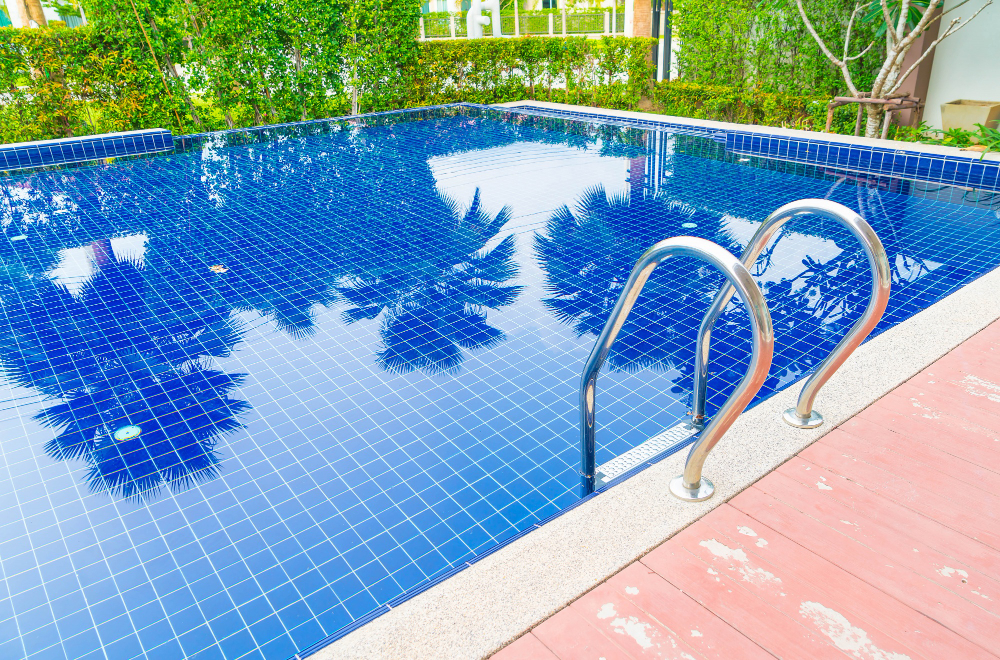A Comprehensive Guide to Different Types of Pool Finishes

The finish of your pool plays a vital role in its aesthetics, functionality, and longevity. Whether you're building a new pool or considering a pool repair in Tampa, FL, understanding your options for pool finishes can help you make the best decision for your backyard oasis. This guide explores the various types of pool finishes, breaking down their pros, cons, and maintenance needs to help you make an informed choice.
What Is a Pool Finish and Why Does It Matter?
A pool finish is the material applied to the inner surface of your swimming pool. Beyond its obvious impact on the appearance of your pool, the finish also contributes to the water's color, texture, and durability. Over time, factors such as weather, chemicals, and constant use can wear down your pool's surface. This is why selecting the right finish during construction or repair is crucial.
The Most Popular Types of Pool Finishes
There are several types of pool finishes to choose from, each with its own style, lifespan, and cost. Here’s a breakdown of the most common options.
1. Plaster Finishes
Plaster is one of the oldest and most traditional pool finishes, and it remains a popular choice today. Made of a mix of cement, water, and marble dust, plaster provides a smooth, classic white surface that complements any pool style.
Pros
- Budget-friendly compared to other finishes
- Creates a uniform, clean look
- Usable for up to 7-10 years with proper maintenance
Cons
- Susceptible to staining and discoloration over time
- Requires regular maintenance to prevent roughness and cracks
Best For: Homeowners seeking an affordable, traditional look for their pool.
2. Aggregate Finishes
If you're looking to add texture and unique visual appeal, an aggregate finish might be the way to go. Aggregate finishes combine plaster with materials like quartz, pebbles, or glass beads to create a striking effect.
Pros
- Wide variety of colors and textures to choose from
- Durable and longer-lasting (can last 15-20 years)
- Resistant to staining and chemical corrosion
Cons
- Typically more expensive than plaster
- Can feel rough to the touch, especially pebble finishes
Popular Types of Aggregate Finishes:
- Quartz: Offers a smooth finish with added strength, thanks to crushed quartz in the mix.
- Pebble: A textured, natural look formed by embedding polished pebbles in plaster.
- Glass Beads: Adds a luxurious, shimmering effect to the pool surface.
Best For: Those who want a premium finish with enhanced aesthetic appeal and durability.
3. Tile Finishes
Tile finishes are the gold standard of pool finishes, offering unmatched durability and style. Made from ceramic, glass, or porcelain tiles, this finish allows for beautifully detailed designs and endless customization.
Pros
- Extremely durable and resistant to damage
- Easy to clean and maintain
- Can create intricate patterns or mosaic designs
Cons
- The most expensive pool finish option
- Installation can be time-intensive
Best For: Luxury pools or homeowners seeking a highly personalized pool aesthetic.
4. Fiberglass Finishes
Fiberglass finishes involve lining the pool with a preformed fiberglass shell. This approach is gaining popularity for its minimal maintenance requirements and sleek appearance.
Pros
- Very low maintenance
- Smooth surface is gentle on skin and swimwear
- Resistant to algae and staining
Cons
- Higher upfront cost compared to plaster
- Limited customization options due to pre-formed shells
Best For: Those prioritizing low-maintenance options without sacrificing durability.
5. Painted Finishes
Though not as common as other options, some pool owners opt for an epoxy or acrylic paint finish. This is typically used for temporary fixes or budget-friendly refreshes.
Pros
- Affordable and quick to apply
- Enhances appearance temporarily
Cons
- Lacks durability, with a lifespan of only 2-5 years
- Requires frequent reapplication
Best For: Temporary solutions or budget-conscious pool owners.
How to Choose the Right Pool Finish
Deciding on the perfect pool finish comes down to several key factors, including your budget, the desired appearance, and how much maintenance you're willing to commit to. Here are a few tips to guide you:
- Consider Your Budget: While plaster is the most affordable, investing in aggregate or tile may save you money in the long run due to their durability.
- Factor in Maintenance: If you prefer low-maintenance options, fiberglass or tile finishes are worth considering.
- Think About Aesthetics: Plaster offers a clean, classic look, while aggregate or tile finishes allow for more creativity and vibrancy.
- Consult an Expert: Pool professionals can help evaluate your specific needs and recommend the best finish for your situation.
Signs Your Pool Finish Needs Repair
If your pool’s surface is showing any of the following signs, it may be time to consider repairs or resurfacing:
- Cracks or chips in the finish
- Discoloration or staining
- Rough or uneven surfaces
- Persistent algae growth
When it comes to pool repair in Tampa, FL, addressing these issues quickly can prevent further damage and costly repairs.
Enhance Your Pool with Aqua Coat Pool Plastering
No matter your vision for your pool, Aqua Coat Pool Plastering is here to bring it to life. From professional pool repair to premium plastering services, our expert team has been serving Tampa, FL, with pride and excellence. We offer free estimates and ensure every project is handled with care and precision.
Contact us today to discuss your needs and receive a free quote.